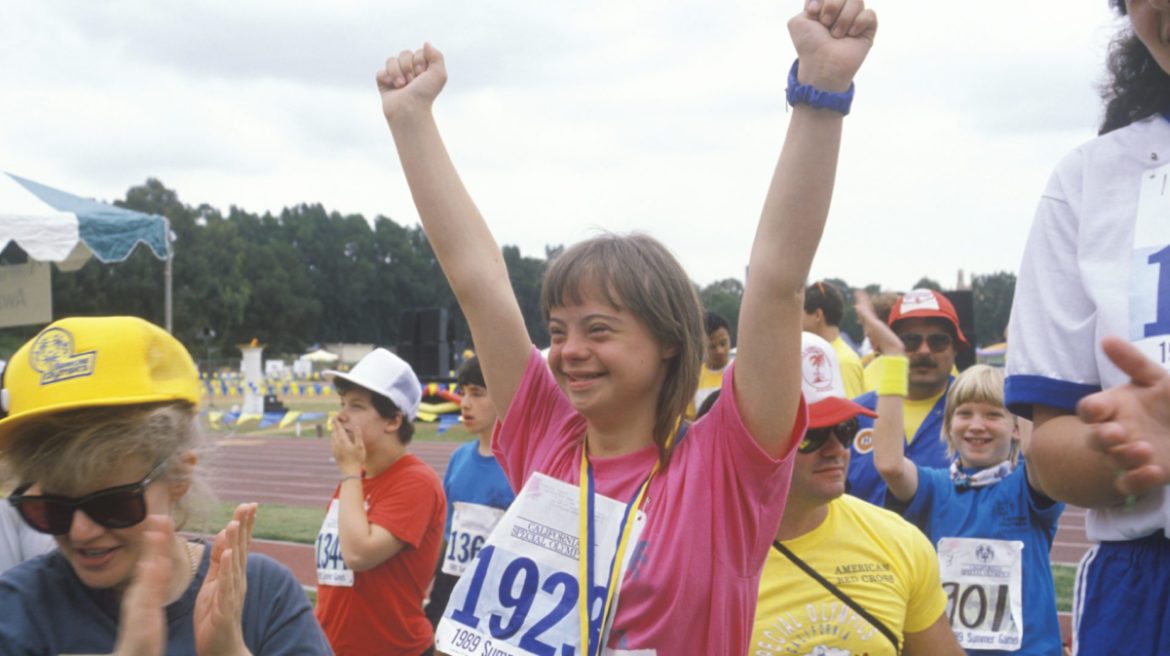Sports and competition go hand in hand. The chance to compete against one another is a fundamental part of being human. Competition and its different layers, both informal and formal, are of paramount importance to human development.
The Special Olympics is an organization that has filled a gaping hole in the world of sports for so many children and families. It serves as the world’s largest organization for children and adults with intellectual disabilities and physical disabilities. The organization is far more than its games that are held every two years around the world. In fact, the Special Olympics provides 5 million participants with training and activities in 172 countries year-round. The first Special Olympic Games were held in Chicago in June 1968. Before the founding of the Special Olympics, people with disabilities did not have widespread access to participate in sport competitions.
The founder of this organization was Eunice Kennedy Shriver who, simply put, was a formidable force – one who saw flagrant inequality and fought to address it. Mrs. Shriver was the fifth of the nine Kennedy siblings. The Kennedy family is a household name – a dynasty, America’s own royal family that has produced prominent public figures for generations. Joseph P. Kennedy Sr. and Rose Fitzgerald Kennedy had nine children, four girls and five boys, each of whom took their place in the public eye at birth. They grew up in a household where success was measured by results and the pressure was unimaginable. President John F. Kennedy once said to the Massachusetts state Legislature, “To whom much is given, much is expected.” This quote is an adaptation from a Biblical quote that Joseph Kennedy Sr. worked to instill in his children – a family creed of sorts. The idea that he, along with the rest of the world, had high expectations for his offspring.
The successes of the Kennedy family that are often discussed are the men’s Senate victories and presidential runs. However, the women of the Kennedy family, Eunice Kennedy Shriver in particular, have played an incredibly important role in American history.
In the early 1960s, two women told Mrs. Shriver of the trouble they had had trying to find a summer camp for their special needs children. The children were not accepted into the mainstream summer camp. Mrs Shriver decided to do something about it. She found Camp Shriver at her Maryland farm, which brought 34 children and 26 counselors together to play sports, engage with each other, and have fun. At her camp, Mrs. Shriver was insistent upon promoting interactions between children with special needs and counselors. By doing this,, she was working to break the stereotypes and preconceptions that were widely accepted at the time.
Camp Shriver then developed into something more – the Special Olympics.
Since its first games in 1968, the Special Olympics has only continued to flourish. The organization has worked to eliminate the unfair treatment of people with disabilities in America and across the world, just as Mrs. Shriver sought out to do at its inception. The next Special Olympic Games will be held in Berlin in June with an expected attendance of about 7,000 athletes to compete in 24 sports, with 3,000 coaches and 20,000 volunteers. These games and the organization as a whole show that through sports and competition, gaps can be bridged, prejudices can be broken down and, ultimately, joy and acceptance can be spread.
Much was expected of Mrs. Shriver and ultimately she exceeded all expectations. Eunice Kennedy Shriver has since passed away but the Special Olympics has continued to prosper and serve as an ever-present reminder of her legacy of inclusion.

